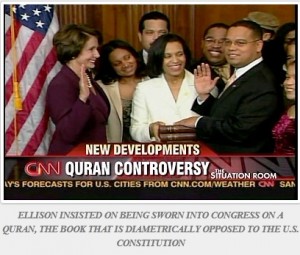Resettlement contractor: You don’t have to “go across the ocean,” you can get diversity right here in Memphis!
This morning I saw this article in a college newspaper about World Relief’s Memphis office promoting its internship program where local college students put in hours saving the agency time and money by helping refugees get settled, get to doctors appointments, apply for jobs etc. and I realized we haven’t said much recently about World Relief or Tennessee’s other big resettlement cities. We mention Nashville all the time and the huge role Catholic Charities plays in Tennessee generally.
We’ve had a lot of posts lately about Catholics, Lutherans and even Jews (Hebrew Immigrant Aid Society) resettling refugees (including Muslim refugees), so maybe if you are an Evangelical Christian you are thinking it’s those other faith groups doing all the contracting for the US State Department, but your people are involved too! World Relief’s full name is World Relief Corp. of National Association of Evangelicals and it is one of nine major federal contractors.
The headquarters office of World Relief is in Baltimore, MD and according to its most recently available Form 990, here, they received $51,828,435 in income and $34,109,484 was from “government grants.” As is the case for the other eight contractors, they could not exist if it weren’t for the fact that you are supporting them with your tax dollars.
Incidentally they don’t pay the big fat salaries we reported for Lutheran Social Service of Minnesota the other day, here.
This is the story, nothing earth-shattering here, just your basic puff-piece.
I suspect, but don’t know for sure, that World Relief keeps track of the student intern hours, assigns them a financial value and is basically reimbursed that money through the federal match grant program (out of the taxpayers’ pocket) as so many contractors are. In other words, you pay for the student ‘volunteers’ too!
From The Daily Helmsman:
Refugees from countries often have already overcome innumerable hurdles, and World Relief is there to provide just what the name suggests: relief.
Across the United States, World Relief has many stations such as Chicago, Nashville, and, the most recent work-in-progress, Memphis.
“It’s a global organization, and not all of them are refugee relief,” said summer intern Peyton English, a junior sociology major attending Union University.
[…..]
Once refugees get their paperwork approved, World Relief sets up their living quarters and figures out their job experience, strengths and weaknesses, along with family information.
The refugees will then receive monthly checks from the government for the next eight months — a period in which employees and interns will work with them to teach the basics of American culture as well as set them up for a life here.
[…..]
While this is an organization that has Christian values, one does not necessarily have to be of that religion to participate. [Muslims are welcome!—ed]
Moses encourages students to join in with this experience.
“I think that Memphis is diverse, and this is one avenue of many to get involved with people of different faiths, backgrounds and socioeconomic backgrounds as well,” he said. “You will get a wide range of experience, and you don’t have to go across the ocean to do that. You can do it right here in Memphis.”
Checking the numbers!
Interested readers should visit WRAPS.net from time to time to see what refugees are coming to your towns. Just now I went there and clicked on Arrivals by Destination City by Nationality by CY as of Aug 31, 2013.
Usually I look up the Fiscal year numbers but this time I inadvertently used the Calendar Year database. The only difference is that the Fiscal Year numbers are recorded from Oct. 1 to Sept. 30 of the following year. In any case these data bases are up to date until August 31st of this year.
From 2001 to August 31, 2013 Tennessee resettled 12,812 refugees. “Welcoming” Nashville resettled 7,273 and 1,395 of those were Somalis. Memphis looks to be the second largest resettlement city in the state with 2,006 refugees and 805 of those were Somalis. In calendar year 2013, Memphis (World Relief?) resettled 103 refugees and 59 of those were newly arrived Somalis.
As I reported here in my story on the Kenya massacre, we have a larger than normal contingent of Somalis resettled in the US this fiscal year.
As of August 31st we have resettled 6,679 additional Somalis this year alone! Go here.
I think I should work on a little project and see where all of the FY 2013 Somalis were resettled.

